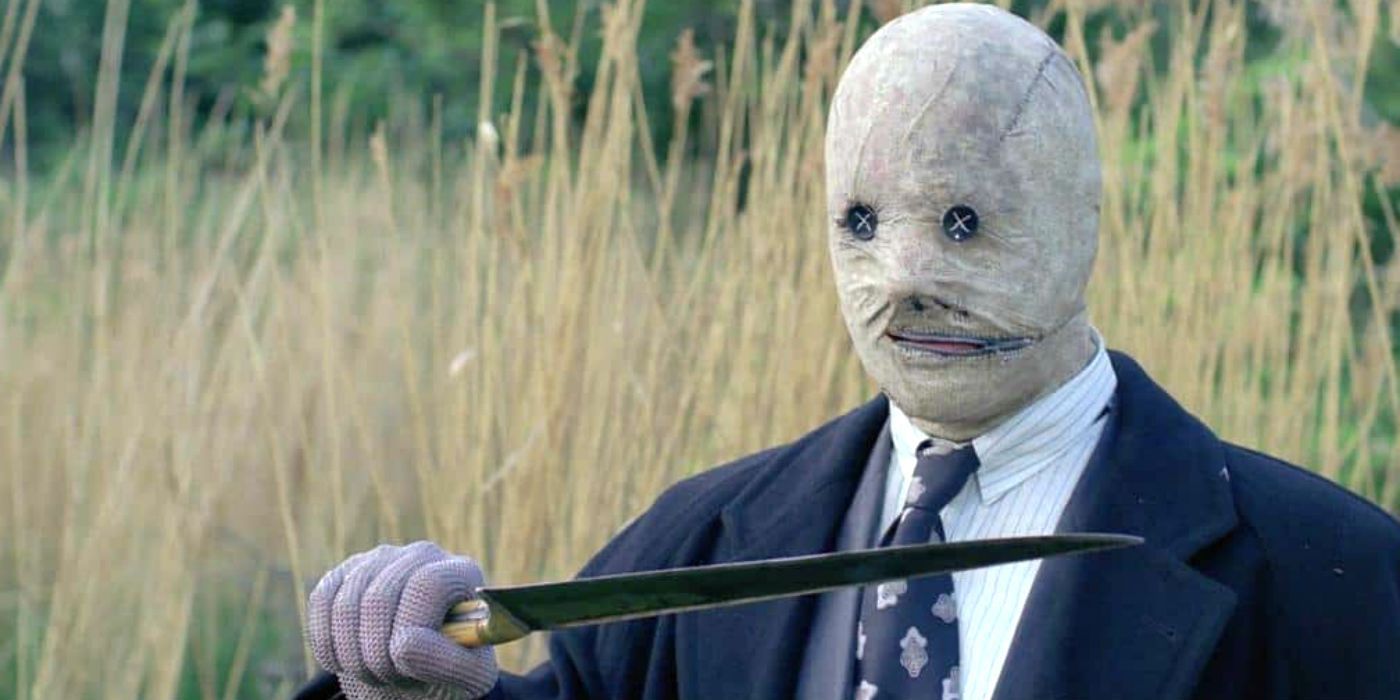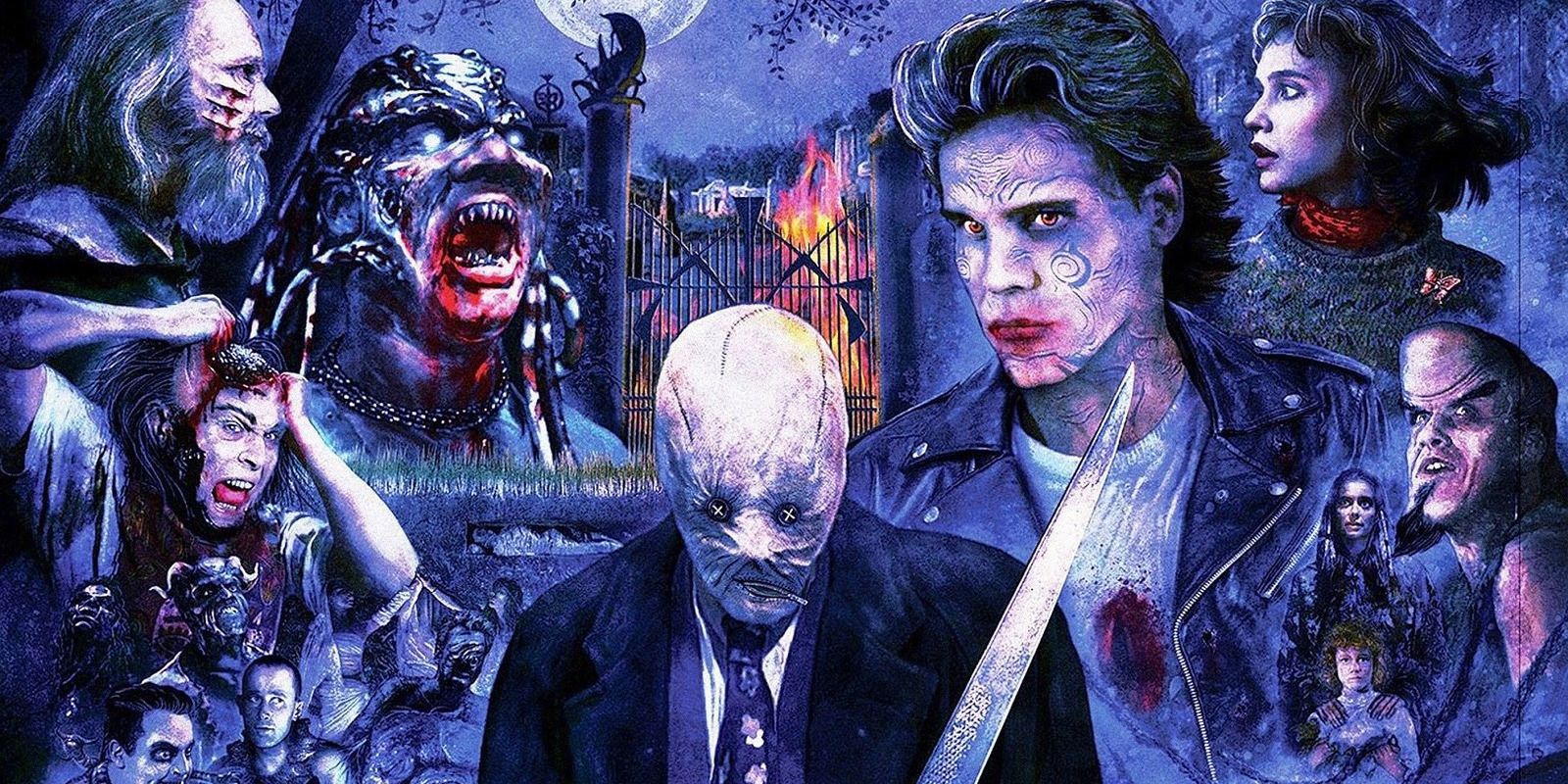
It happens often. A movie comes out, it gets misinterpreted and then flops at the box office. Only time and scrutiny remain to give it the elevation or derision it deserves. Nightbreed is one such movie. Horror master Clive Barker had grand dreams for Nightbreed but fell victim to studio obfuscation. What could have been his next big horror hit, following the wildly popular Hellraiser, ended up being a commercial and critical flop. Just over twenty years later, it has never received the true mainstream respect it deserves, only screened in horror circles and fan festivals. Nightbreed sits with certainty as one of the best cinematic creations of Clive Barker’s career. Perhaps the upcoming SyFy series will rejuvenate its reputation in the eyes of movie fans?
Nightbreed came to theaters in 1990. It starred largely unknown actors, except for fellow horror director and ever popular David Cronenberg. The score was notably done by a busy Danny Elfman, who rushed in after finishing Batman (1989) and then out again to do Dick Tracy (also 1990) for Warren Beaty. It flopped hard at the box office, earning $16 million on a budget of $11 million. The reviews were no better.
RELATED: This Action Movie About A Runaway Train Is A Masterclass In Filmmaking
The plot follows Aaron Boone, who visits a psychotherapist (Cronenberg) because he has vivid dreams of a mysterious magical city named Midian. The psychotherapist, as it turns out, is a serial killer named Button Face who uses drugs and therapy to convince Boone that he committed all the murders and that he must turn himself in. Before Boone does so, he is whisked into the underworld. Midian is a city of monsters, but they are not evil. In fact, the major theme of the movie is how the humans are the monsters and the monsters are the heroes. Nightbreed contrasts the monsters, who are grotesque and disfigured but who are innocent, kind, and wholesome, with the authorities (being the police, the militia, and a zealot priest) as cruel, violent xenophobic maniacs.
Clive Barker had large ambitions for Nightbreed. He wanted to create a world of monsters, fully realized and totally believable. He based the movie on a novella he wrote a couple of years before the film production. He designed the movie to be the first of a trilogy, where at the end, the main character becomes the leader of the Breed and must take them to a new homeland. He wanted to make the Star Wars of horror movies.
Nightbreed is full of interesting and various types of monsters. To name a few, there is a crescent moon-faced guy named Kinski, an obsidian skinned, two-horned devil looking guy named Lude, a relatively normal looking guy who can take the skin off his own face named Narcisse, a hedgehog skinned lady named Shuna Sassi, a guy with snakes living in his stomach named Leroy, and a whole bunch of others with all shapes of bodies.
20th Century Fox did not understand Barker’s vision, nor did they enjoy the movie he created. To “fix the movie,” they reduced the running time from 150 minutes to 102 minutes. They also hamstrung the marketing by making commercials that mislead the audience as to the nature and subject of the movie. Instead of announcing it as a fantasy mythological horror, they made TV advertisements that showed it as another slasher film.
Barker would learn that the head of the marketing company never finished watching the movie and instead made whatever commercials they felt out of his movie. Worse, they did not screen it for critics nor let it go to a national theatrical release. It limped into theaters, was kicked around for a short time, and booted out with paltry returns.

All the studio interference in the world could not lessen the gem that is Nightbreed. For all that was cut out, the movie that remained became a cult classic to the horror fans who did see it. It celebrated the outcasts, the subculture, the pariahs and demonized the dominant white-American-macho-male mass culture of the time. Director Alejandro Jodorowsky also interpreted as the first gay horror movie.
Most horror movies have the clean-cut, white, male (sometimes female) protagonist overcome the vicious monster, whereas in Nightbreed those who would normally be cast as heroes are persecuting innocent monsters. The monsters have families, follow their own religion and moral code, and work together in a rich underground society. They accept others who are different, rather than attacking them or forcing them to change into something they are not, like the society above ground. Nightbreed is an inversion of the horror genre, and a poignant commentary on society.
Clive Barker’s horror portfolio is poised for an imminent resurgence. There is a Hellraiser remake in production, as well as a completed Candyman reboot waiting for the pandemic to lift so it can safely hit theaters. It has already been delayed three times. Additionally, the SyFy network is developing a TV series with the Nightbreed property. The director of Godzilla: King of the Monsters is attached.

